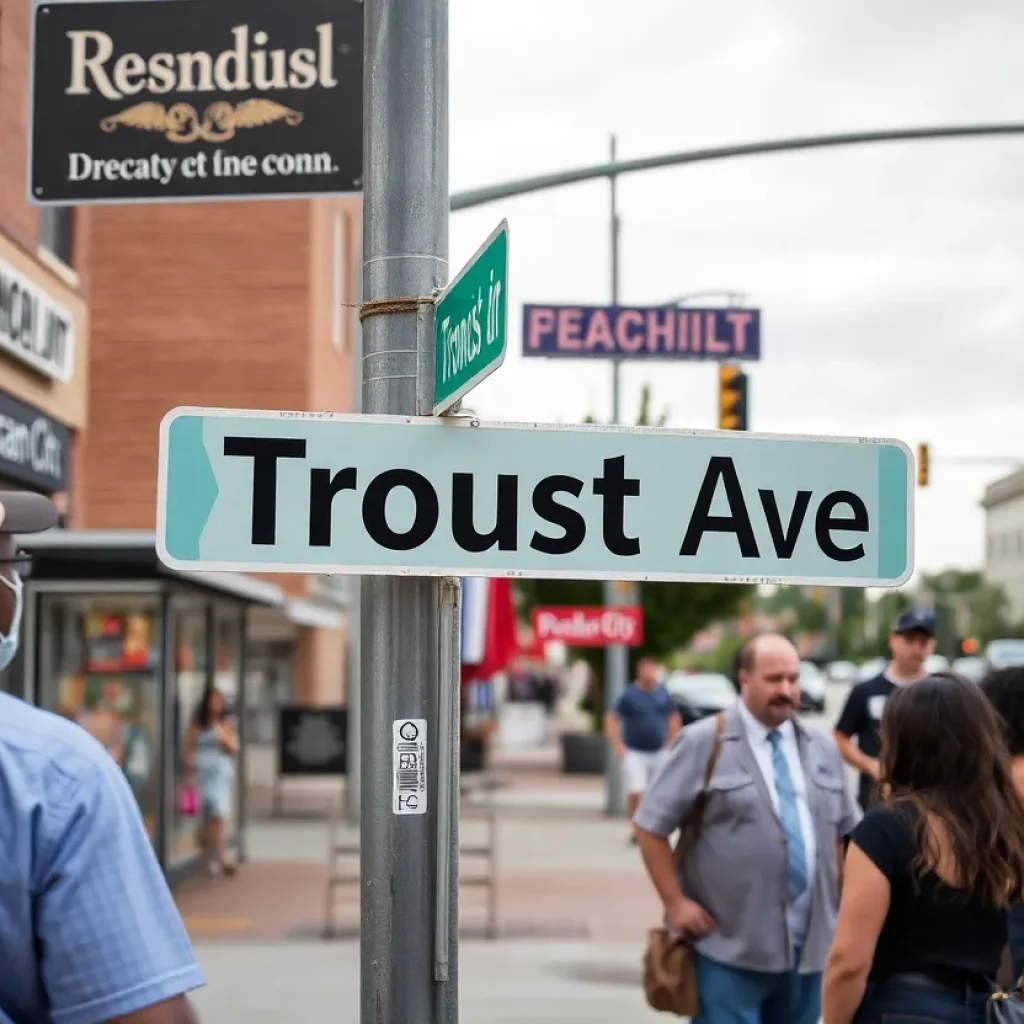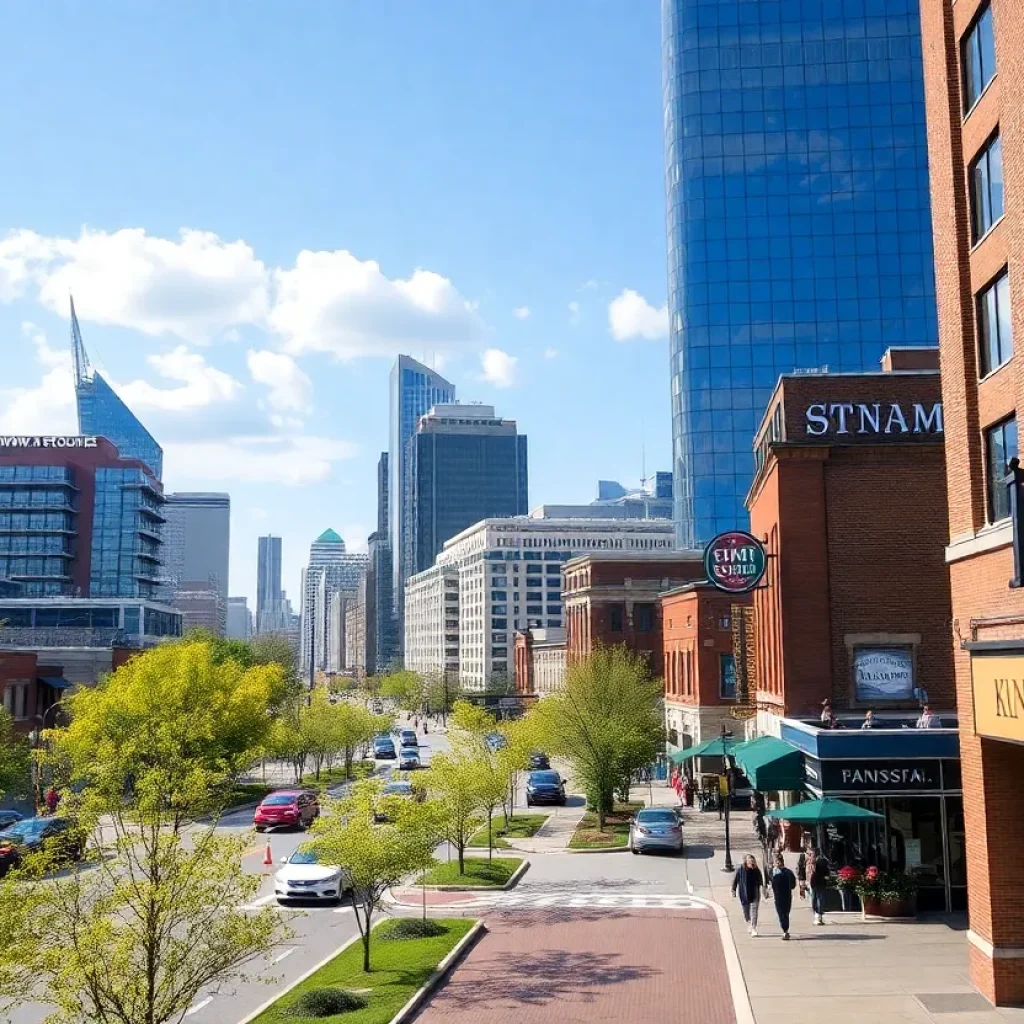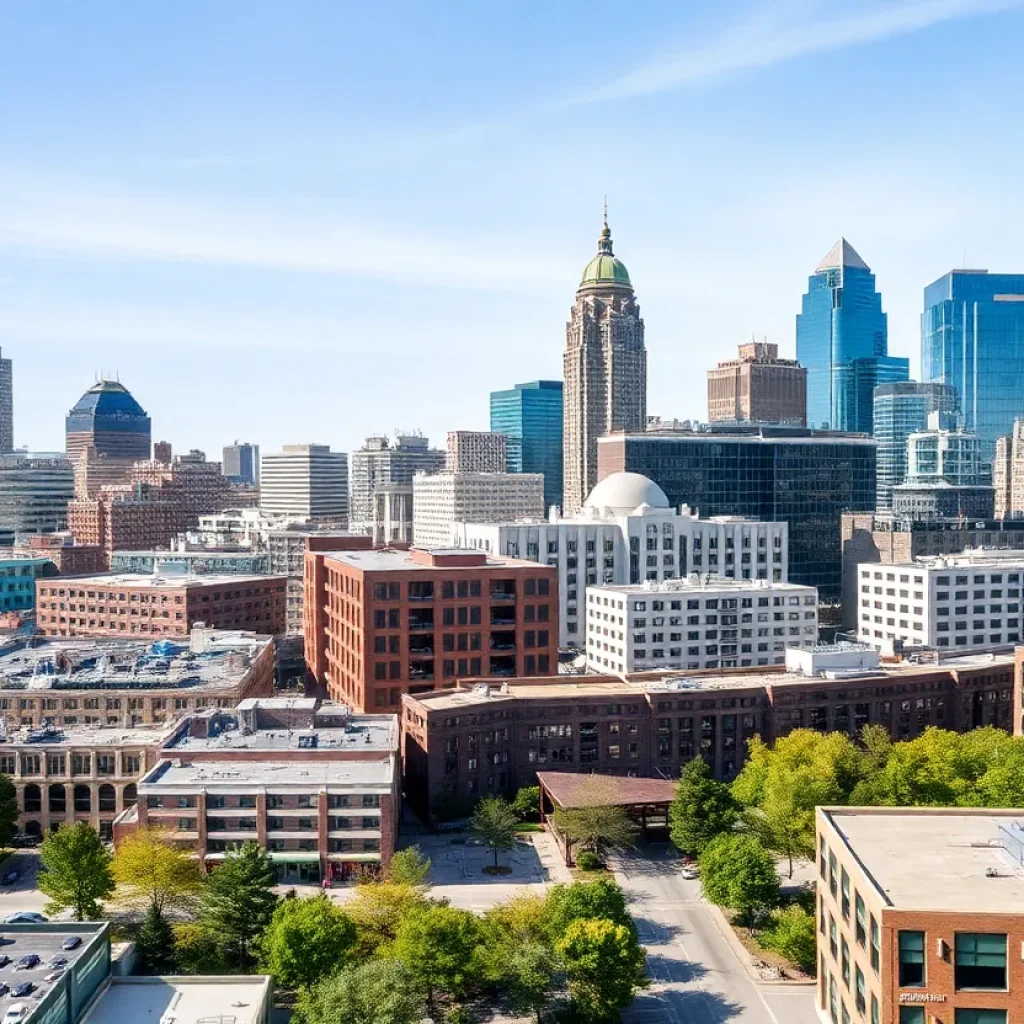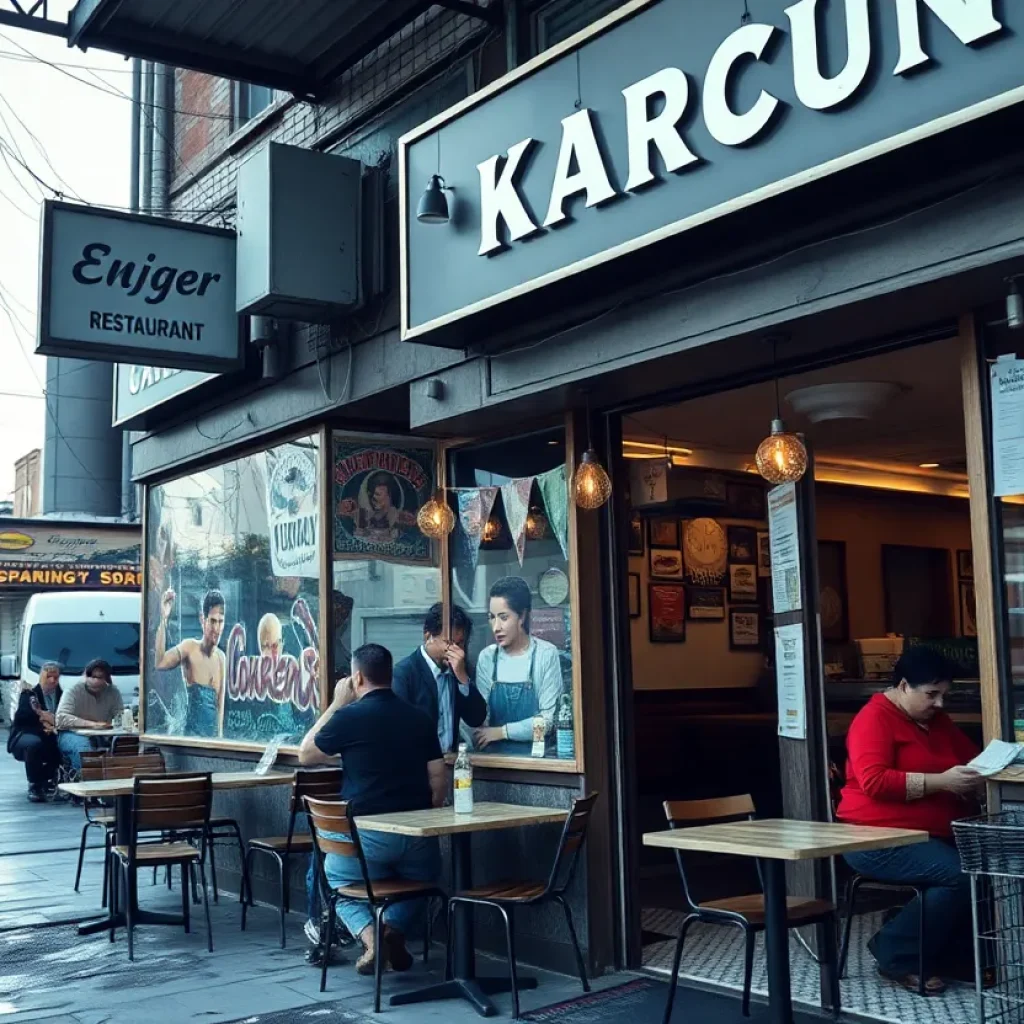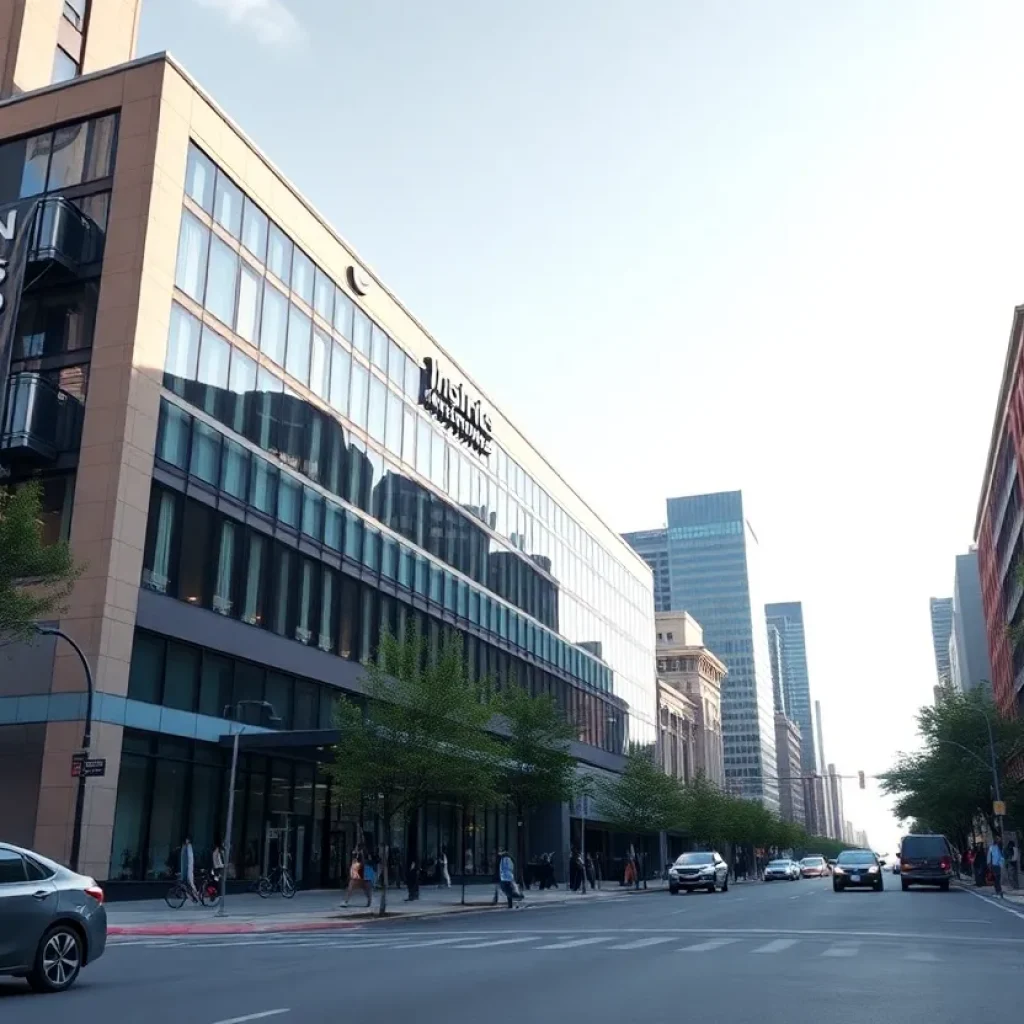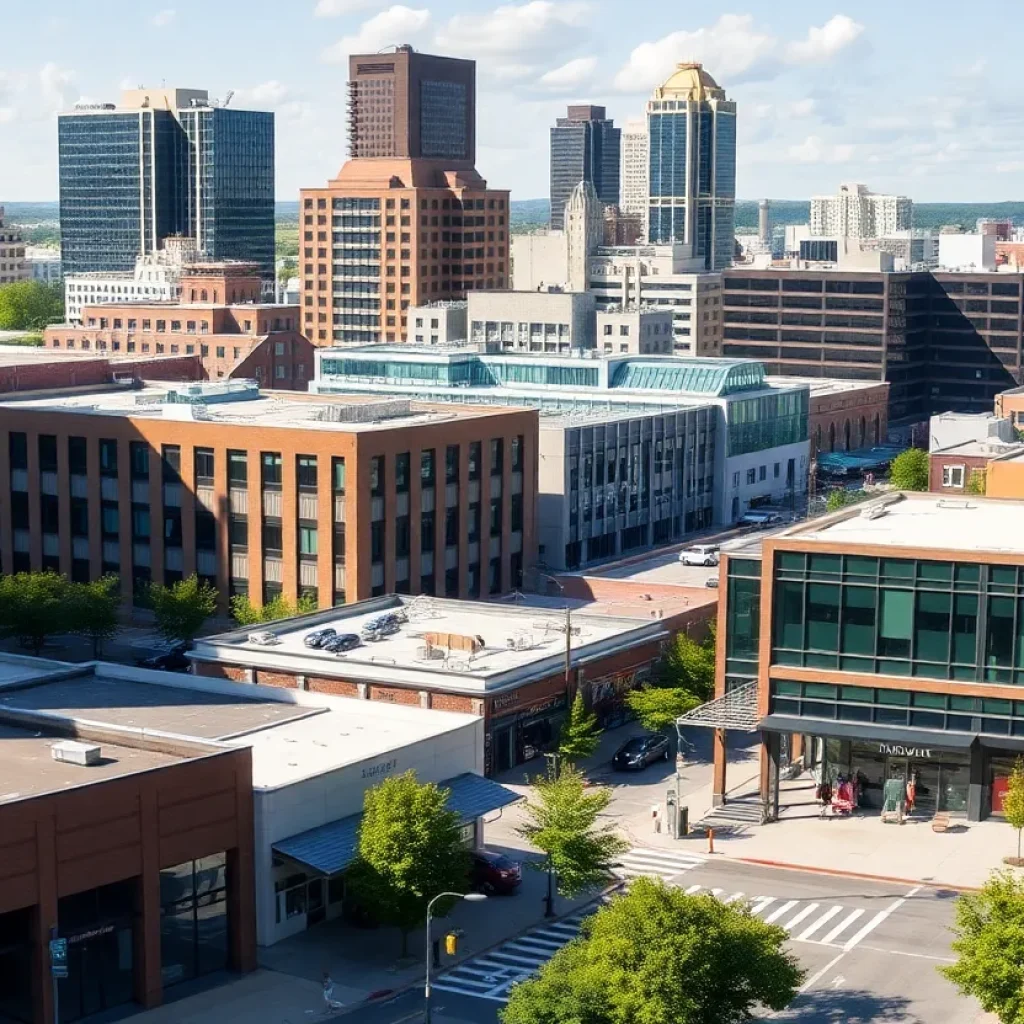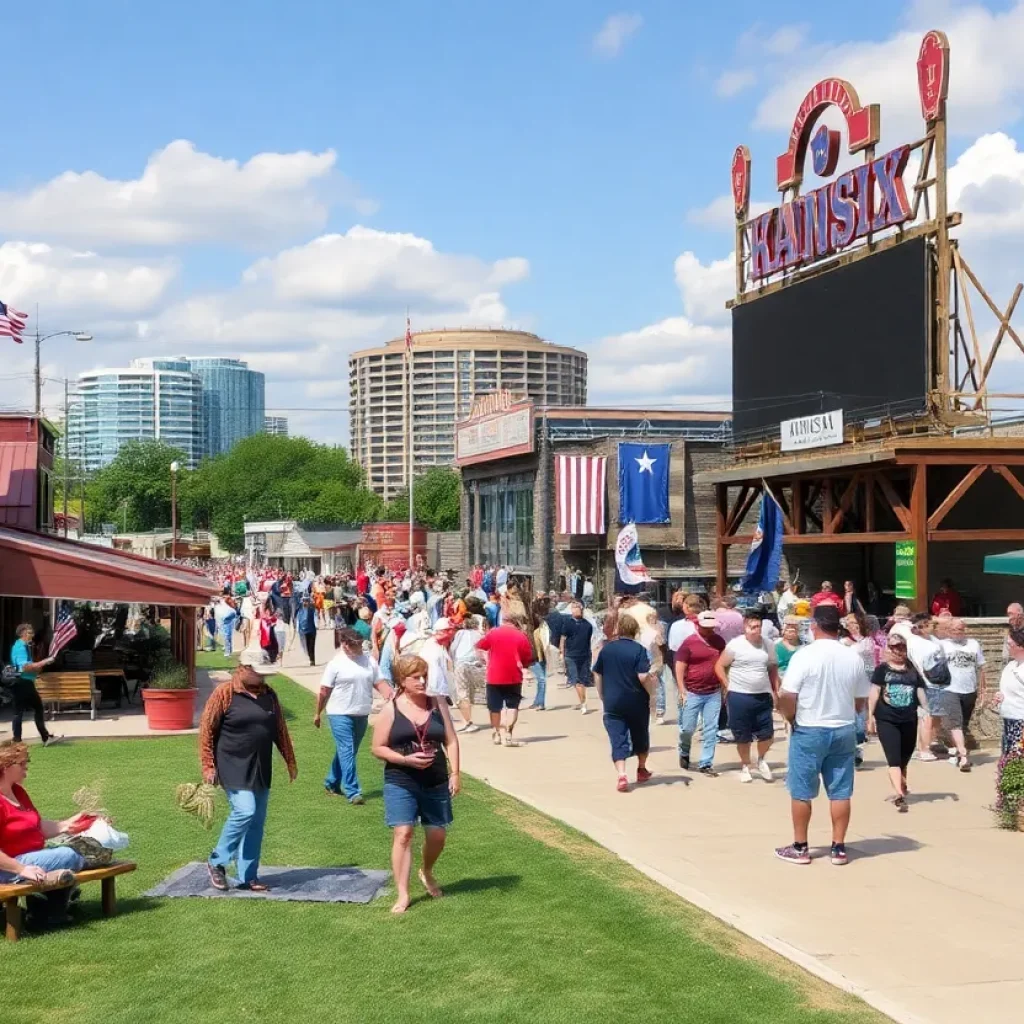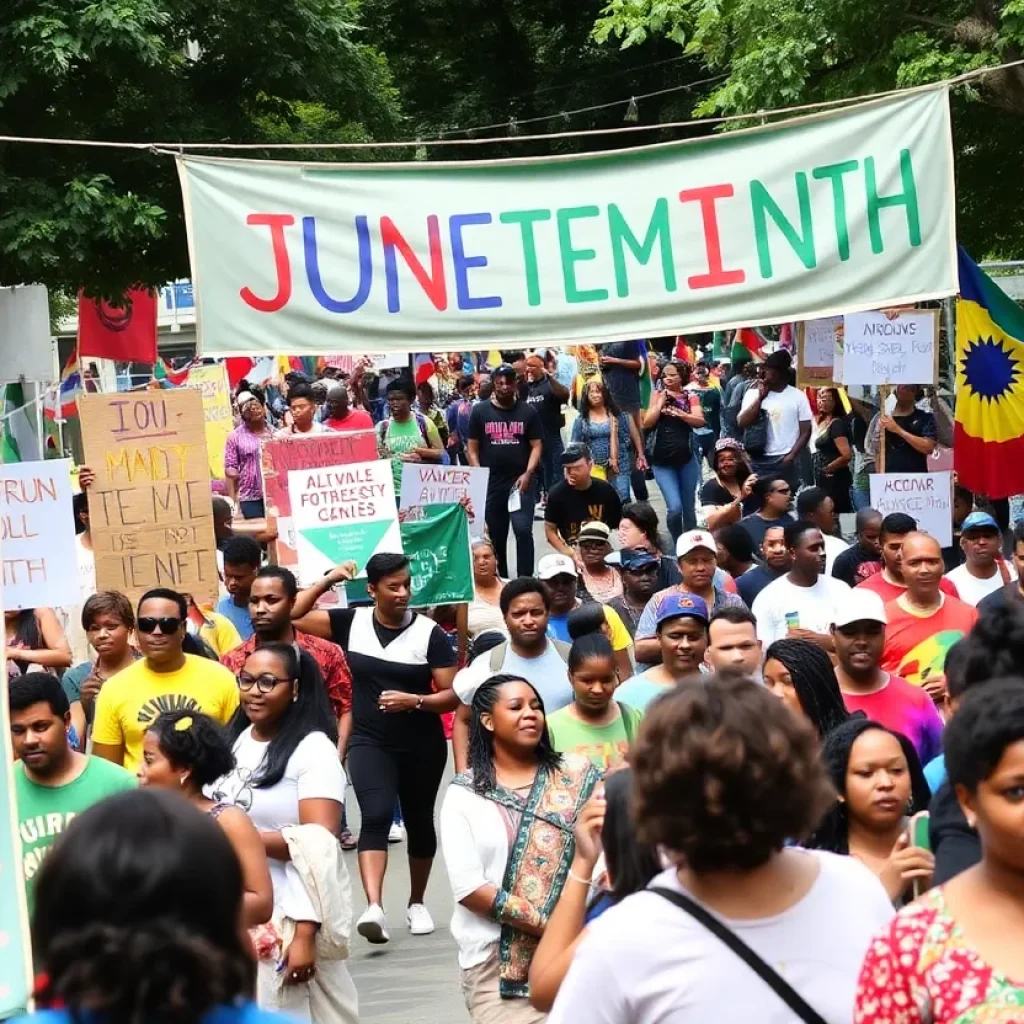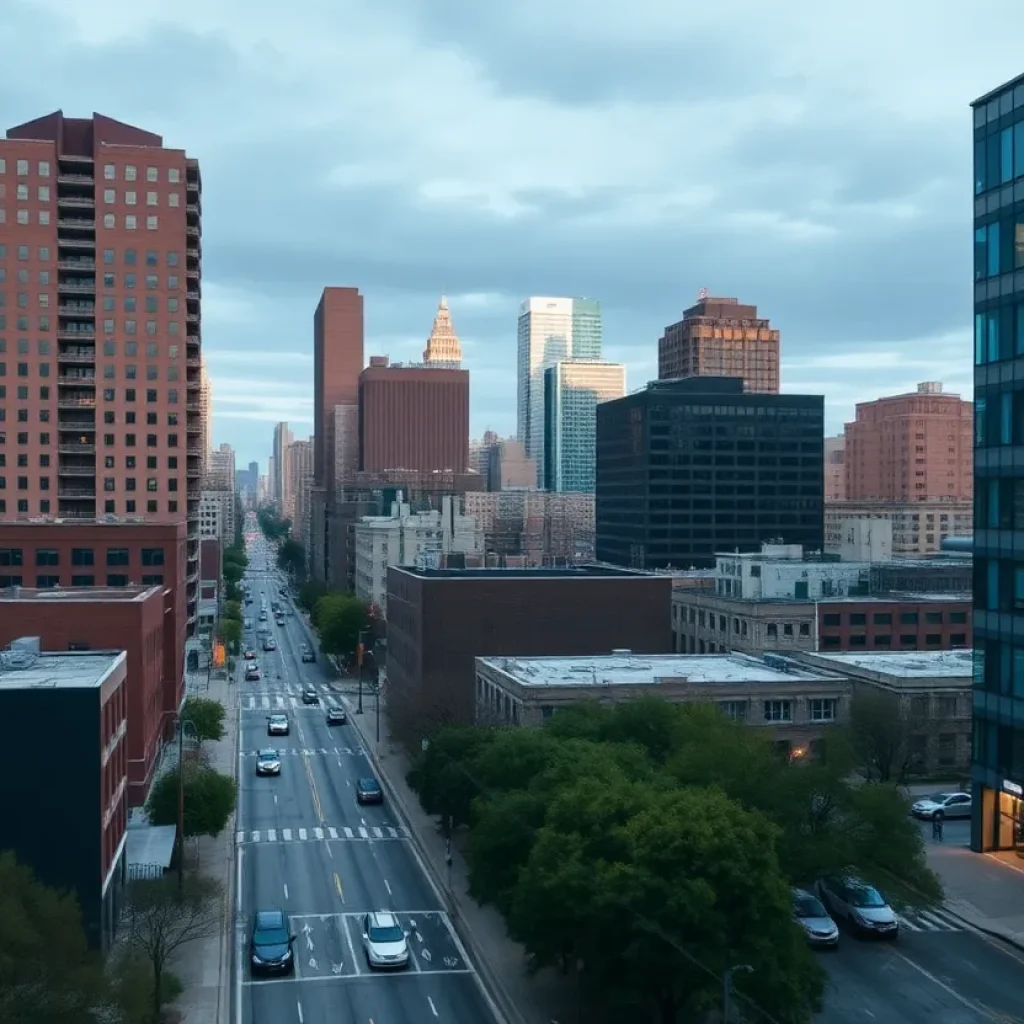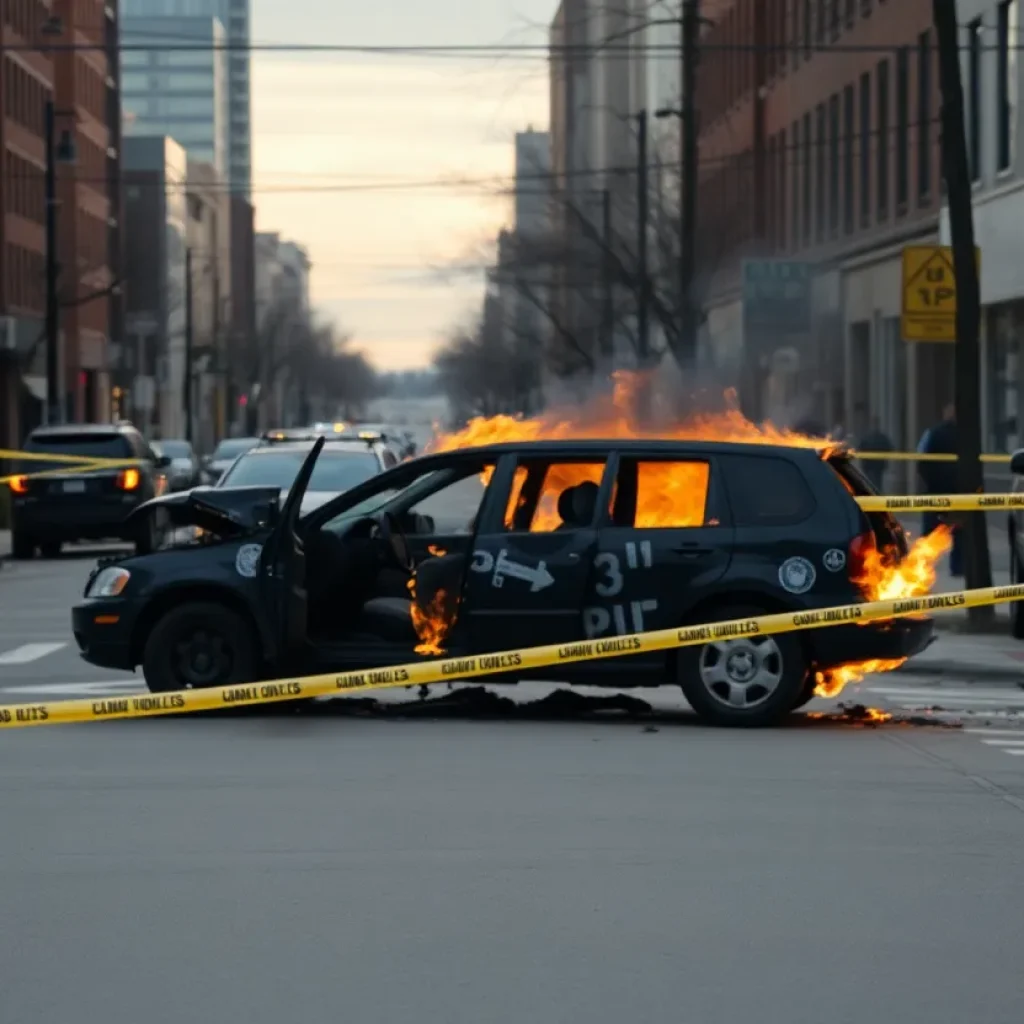Kansas City News
TOP kansas city STORIES
BREAKING NEWS
Kansas City Crossroads Neighborhood Battles Illegal Street Racing Crisis
News Summary The Crossroads neighborhood in Kansas City is under siege from a rampant illegal street racing issue, causing concern among residents and business owners. Local leaders are seeking solutions...
Arkansas Man Arrested for School Burglaries in Missouri and Iowa
News Summary Curtis Lee Barton, a 40-year-old man from Arkansas, was arrested on suspicions of breaking into 16 schools across Missouri and Iowa. Law enforcement linked him to the crimes...
Kansas City Council Postpones Troost Avenue Renaming
News Summary The Kansas City City Council has postponed the proposal to rename Troost Avenue to Truth Avenue, citing a lack of support. Community leaders advocate for the change, citing...
Kansas City Royals Stadium Discussions Heat Up
News Summary The Kansas City Royals are actively exploring new stadium locations, with Missouri lawmakers considering private funding. Fan surveys indicate a preference for downtown, but economic uncertainty complicates funding...
Tragic Gas Explosion in Lexington Claims Young Life
News Summary A gas explosion in Lexington, Missouri has resulted in the tragic death of a 5-year-old boy, Alistair Lamb, and injuries to two others. The incident raised serious concerns...
Kansas City Faces Surge in Dangerous Sideshow Activities
News Summary Kansas City is grappling with an alarming increase in dangerous sideshow activities disrupting local streets, especially in the Crossroads area. These chaotic incidents, often seen during events like...
BUSINESS
EPR Properties Reports Strong Q1 Financial Results
News Summary EPR Properties, a Kansas City-based REIT, reported impressive financial results for the first quarter, surpassing Wall Street expectations with $92.9 million in funds from operations (FFO) at $1.21...
Manny’s Mexican Restaurant Faces Closure Amid Rising Crime
News Summary Manny’s Mexican Restaurant, a staple in Kansas City’s Crossroads district for nearly 45 years, is contemplating closure due to escalating crime. Owner David Lopez highlights increased break-ins, vandalism,...
Noble Research Institute Expands Regenerative Ranching Courses
News Summary The Noble Research Institute is expanding its regenerative ranching and land management courses to McKenzie, North Dakota, Pendleton, Oregon, and Winter Garden, Florida in 2025. This initiative aims...
H&R Block Declares Quarterly Dividend for Shareholders
News Summary H&R Block, Inc. has announced a quarterly cash dividend of $0.375 per share, reflecting its commitment to returning value to shareholders. The dividend, payable on July 3, will...
Armed Forces Bank Achieves Financial Strength Recognition
News Summary Armed Forces Bank has been recognized for its financial strength, securing the second place among large banks in Kansas City. With a robust loan-to-deposit ratio and high core-capital...
Kansas City Welcomes New USA Ninja Challenge Franchise
News Summary A new USA Ninja Challenge franchise has opened in Kansas City, focusing on empowering children through engaging fitness activities. Spearheaded by Brad Staples and Cynthia Agbetuyi, the franchise...
Kansas City Life Insurance Reports First-Quarter Gains
News Summary Kansas City Life Insurance Company announced a rise in its first-quarter net income for 2025, reaching $1.9 million, up from $1.6 million last year. The increase in earnings...
Jackson County Proposes Licensing for Tow Companies
News Summary In response to increased complaints about predatory towing, Jackson County is considering a licensing system for tow companies. With neighboring counties already regulated, the proposed fees have stirred...
Kansas City Achieves Milestone with Average Wage Surpassing $76,000
News Summary Kansas City, Missouri, celebrates a significant economic achievement as the average wage in the city surpasses $76,000. This milestone, emphasized by Steven Anthony of the Economic Development Corporation,...
Events/What's Happening
Kansas City Prepares for Economic Boost from FIFA World Cup
News Summary Kansas City is set to host the 2026 FIFA World Cup, which is expected to generate significant economic opportunities. Community leaders are discussing ways to leverage this global...
Kansas City Commemorates Juneteenth with Month-Long Celebrations
News Summary Kansas City is set to honor Juneteenth with a series of month-long events celebrating Black culture and heritage. Key highlights include the Miss Juneteenth Pageant, Juneteenth First Fridays,...
Kansas City Weekend Events Celebrate Cinco de Mayo and Derby
News Summary Kansas City is set for a vibrant weekend packed with celebrations, highlighting both Cinco de Mayo and the Kentucky Derby. From cultural festivities to unique food events, the...
Kansas City Hosts 21st Celebration at the Station
News Summary Kansas City will celebrate its 21st ‘Celebration at the Station’ event on May 28, a free, family-friendly gathering featuring live music, food trucks, and a stunning fireworks show....
Kansas City Welcomes Back First Friday Events
News Summary Kansas City celebrated the return of its First Friday events on April 5, 2025, despite rainy weather. This beloved tradition supports local artists and galleries, drawing tens of...
Kansas City Unveils Vibrant Outdoor Drinking Spots for Summer
News Summary This summer, Kansas City is bustling with new outdoor drinking venues, offering everything from rooftop bars to patio lounges perfect for seasonal cocktails. Highlights include the Percheron Rooftop...
Weekend Events in Kansas City: May 1-4
News Summary Kansas City is set for an exciting weekend from May 1-4, featuring outdoor concerts, rodeos, art festivals, and cultural celebrations. Highlights include the Mobile Music Box Concert, the...
Kansas City Welcomes WWE Fans for Monday Night Raw
News Summary WWE fans packed the T-Mobile Center in Kansas City on April 28 for an unforgettable episode of Monday Night Raw, showcasing their enthusiasm with shirts, replica belts, and...
Riley Green Announces Kansas City Concert Date
News Summary Country music star Riley Green is set to perform at the T-Mobile Center in Kansas City on November 8, 2025, as part of his Damn Country Music Tour....
CRIME
Arkansas Man Arrested for School Burglaries in Missouri and Iowa
News Summary Curtis Lee Barton, a 40-year-old man from Arkansas, was arrested on suspicions of breaking into 16 schools across Missouri and Iowa. Law enforcement linked him to the crimes...
Charges Filed Against Metro Tow Operator for Theft and Forgery
News Summary Lannette Adamson, a towing company operator in Kansas City, faces felony theft and forgery charges linked to her business practices at Metro Tow. Allegations include stealing vehicles and...
Surge in Domestic Violence Homicides Plagues Kansas City
News Summary Kansas City is grappling with a disturbing rise in domestic violence homicides, reporting 12 cases in the first four months of 2025—matching the total for all of 2024....
Kansas City Man Sentenced to Life for Double Murder
News Summary Earl Dunn III, a 21-year-old from Kansas City, has been sentenced to life in prison without parole for the March 2021 double homicide. Convicted of murdering two individuals,...
18-Year-Old Charged with Murder Following Liquor Store Shooting
News Summary Jeremiah Williamson, an 18-year-old man, faces charges of second-degree murder, first-degree attempted robbery, and armed criminal action after a fatal shooting incident at Liquor Xpress in Kansas City....
Kansas City Man Charged with 2nd Degree Murder in Hit and Run
News Summary Anthony Milligan, a 55-year-old Kansas City man, has been charged with 2nd Degree Murder and Armed Criminal Action following a deliberate hit and run incident that resulted in...
POLITICS
Kansas City Crossroads Neighborhood Battles Illegal Street Racing Crisis
News Summary The Crossroads neighborhood in Kansas City is under siege from a rampant illegal street racing issue, causing concern among residents and business owners. Local leaders are seeking solutions...
Arkansas Man Arrested for School Burglaries in Missouri and Iowa
News Summary Curtis Lee Barton, a 40-year-old man from Arkansas, was arrested on suspicions of breaking into 16 schools across Missouri and Iowa. Law enforcement linked him to the crimes...
Kansas City Council Postpones Troost Avenue Renaming
News Summary The Kansas City City Council has postponed the proposal to rename Troost Avenue to Truth Avenue, citing a lack of support. Community leaders advocate for the change, citing...
Kansas City Royals Stadium Discussions Heat Up
News Summary The Kansas City Royals are actively exploring new stadium locations, with Missouri lawmakers considering private funding. Fan surveys indicate a preference for downtown, but economic uncertainty complicates funding...
Kansas City Faces Surge in Dangerous Sideshow Activities
News Summary Kansas City is grappling with an alarming increase in dangerous sideshow activities disrupting local streets, especially in the Crossroads area. These chaotic incidents, often seen during events like...
Charges Filed Against Metro Tow Operator for Theft and Forgery
News Summary Lannette Adamson, a towing company operator in Kansas City, faces felony theft and forgery charges linked to her business practices at Metro Tow. Allegations include stealing vehicles and...
Melesa Johnson Elected as First African American Prosecutor in Jackson County
News Summary Melesa Johnson has made history as the first African American prosecutor of Jackson County, Missouri, winning approximately 57% of the vote against her Republican opponent. Johnson’s campaign emphasized...
Surge in Domestic Violence Homicides Plagues Kansas City
News Summary Kansas City is grappling with a disturbing rise in domestic violence homicides, reporting 12 cases in the first four months of 2025—matching the total for all of 2024....
Kansas City Man Charged with 2nd Degree Murder in Hit and Run
News Summary Anthony Milligan, a 55-year-old Kansas City man, has been charged with 2nd Degree Murder and Armed Criminal Action following a deliberate hit and run incident that resulted in...
SPORTS
Kansas City Prepares for Economic Boost from FIFA World Cup
News Summary Kansas City is set to host the 2026 FIFA World Cup, which is expected to generate significant economic opportunities. Community leaders are discussing ways to leverage this global...
Kansas City Welcomes WWE Fans for Monday Night Raw
News Summary WWE fans packed the T-Mobile Center in Kansas City on April 28 for an unforgettable episode of Monday Night Raw, showcasing their enthusiasm with shirts, replica belts, and...
Kansas City Celebrates Tech N9ne’s Sonic ID for World Cup
News Summary Kansas City is buzzing with excitement as local artist Tech N9ne has been selected to create the city’s Sonic ID for the FIFA World Cup 2026. This unprecedented...
Action-Packed Weekend Ahead in Kansas City!
News Summary This weekend in Kansas City features a diverse lineup of events including concerts by Paul Simon and Five for Fighting, Kansas City Royals baseball games, charity workouts, family...
Kansas City Unveils the Roy Blunt Luminary Park
News Summary Kansas City has officially named its South Loop Project the Roy Blunt Luminary Park, honoring the former U.S. Senator. The park will transform Interstate 670 into a vibrant...
Kansas City Royals Gear Up for Opening Day Promotions
News Summary The Kansas City Royals are set to launch their exciting 2025 season with a special promotion at Kauffman Stadium on April 5, 2025. The first 10,000 attendees will...
Fun-Filled Weekend Events in Kansas City: April 4-6, 2025
News Summary Kansas City is gearing up for an exciting weekend from April 4 to 6, 2025, featuring a variety of activities suitable for all interests. Highlights include the return...
Weekend Events in Kansas City: April 3–6
News Summary Kansas City has a vibrant lineup of events this weekend, from theater performances like ‘Back to the Future: The Musical’ to jazz concerts and cultural festivals. With family-friendly...
Events Happening in Kansas City This Weekend: March 28-30, 2025
News Summary From art exhibits to thrilling sports events, Kansas City offers an exciting weekend from March 28-30, 2025. Highlights include the Orchid Delirium exhibit, Kansas City FilmFest, Royals baseball...







